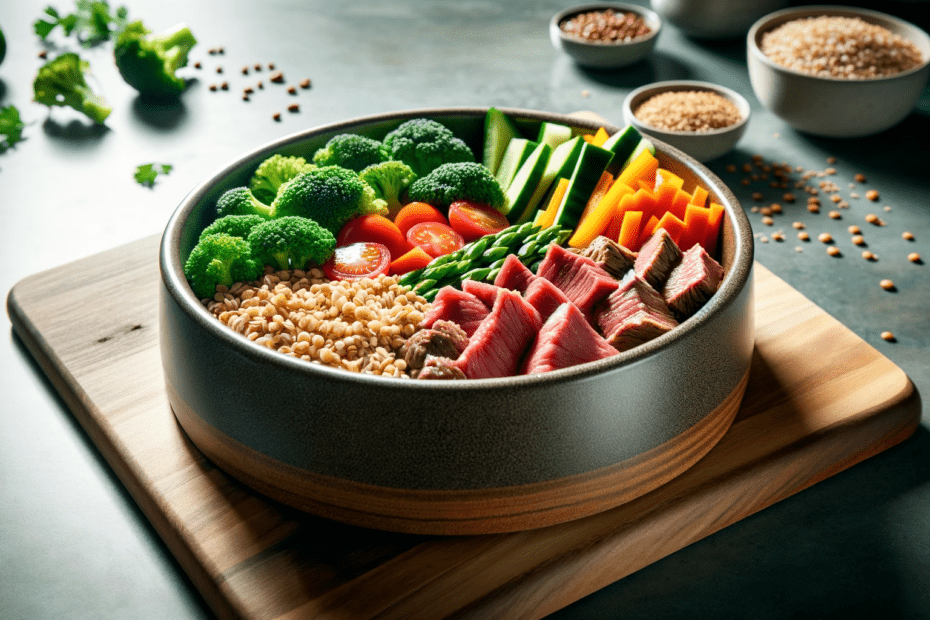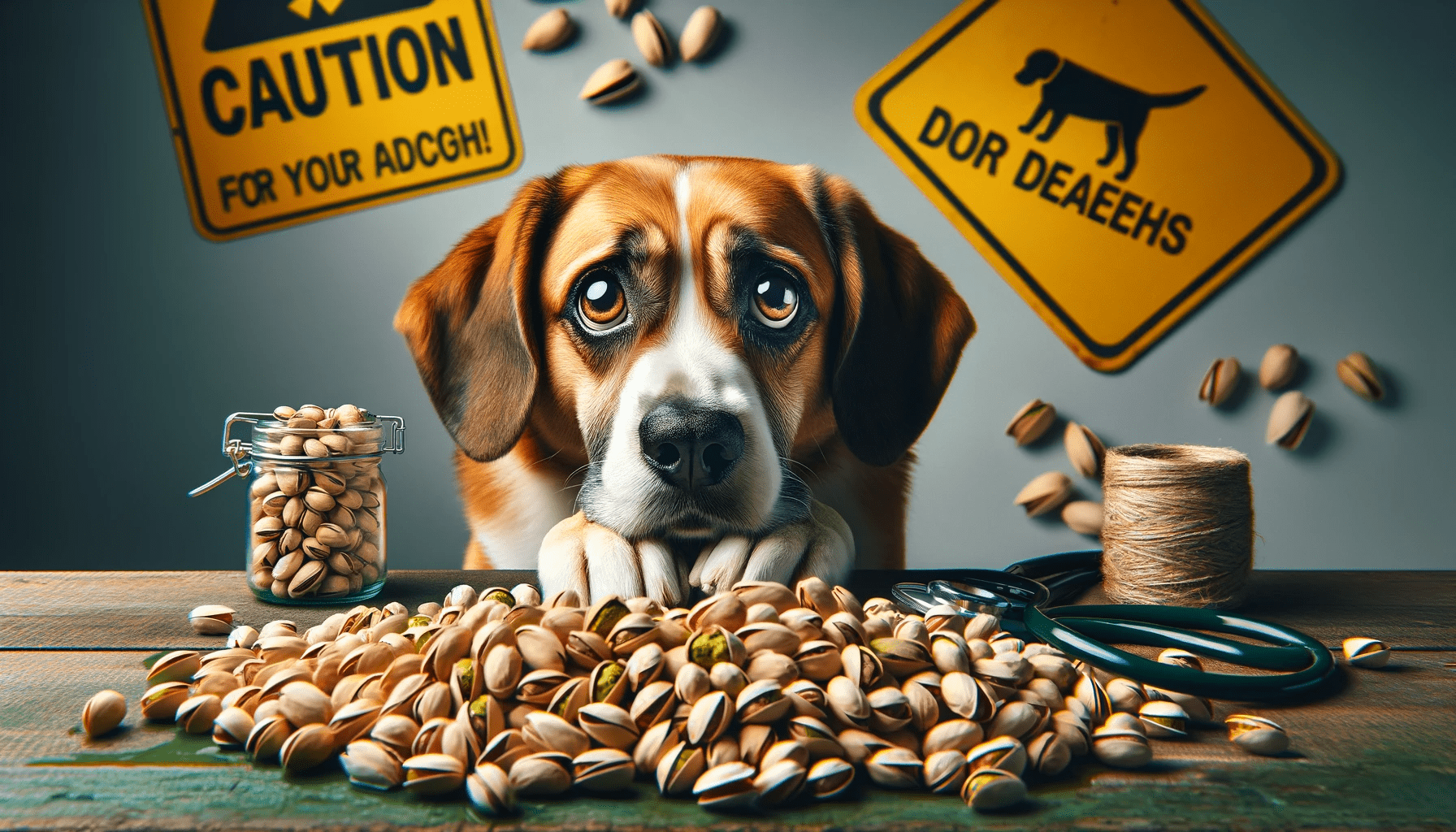If you want your furry friend to live a long and healthy life, it's essential to provide them with a balanced diet. Feeding your dog the right nutrients is crucial for their overall well-being.
In this article, we will explore the significance of a balanced diet for dogs. You'll discover the key nutrients they need, the dangers of an imbalanced diet, and practical tips for maintaining their nutritional needs.
So, let's dive in and ensure your dog gets the best diet possible.
Key Takeaways
- Understanding macronutrients and including a variety of carbohydrates in a dog's diet is essential for balanced nutrition.
- Observing your dog's eating habits and consulting with a veterinarian can help meet your dog's specific dietary needs.
- A balanced diet can contribute to weight management, promote a healthy digestive system, and enhance overall health and well-being in dogs.
- Protein is crucial for muscle growth and maintenance, and choosing the right food that meets a dog's specific nutritional requirements is important for optimal health.
The Basics of Balanced Nutrition
To ensure your dog receives optimal nutrition, it's important to understand the basics of providing a balanced diet. Understanding macronutrients and their role in your dog's diet is crucial. One of the key macronutrients is carbohydrates. Carbohydrates are a primary source of energy for your dog's body. They're broken down into glucose, which is used by cells for various functions.
Carbohydrates in a dog's diet come from sources such as grains, vegetables, and fruits. They provide the necessary fuel for physical activity, growth, and maintenance of body tissues. However, it's important to note that not all carbohydrates are created equal. Simple carbohydrates, like sugars, can cause spikes in blood sugar levels, while complex carbohydrates, like whole grains, are digested more slowly, providing a steady release of energy.
Including a variety of carbohydrates in your dog's diet is important to ensure they receive the necessary nutrients. Whole grains, such as brown rice or oats, are excellent sources of complex carbohydrates. Vegetables like sweet potatoes or carrots also provide carbohydrates along with essential vitamins and minerals. Fruits, like apples or blueberries, can be included as healthy treats, providing natural sugars along with fiber.
Understanding Your Dog's Dietary Needs
To ensure your dog's optimal health and well-being, it's important to understand their specific dietary needs. Dogs, like humans, have specific preferences when it comes to their diet. Understanding these preferences will help you choose the right food for your dog and ensure they receive the necessary nutrients.
Canine dietary preferences can vary depending on factors such as breed, age, and activity level. Some dogs may prefer wet food, while others may prefer dry kibble. It's important to observe your dog's eating habits and consult with your veterinarian to determine the best type of food for them.
Feeding guidelines for puppies are crucial for their growth and development. Puppies have different dietary needs than adult dogs, as they require more calories and nutrients to support their rapid growth. It's recommended to feed puppies multiple small meals throughout the day to provide them with a steady supply of energy.
When selecting food for your dog, look for options that are specifically formulated for their life stage and size. High-quality dog food should contain a balance of protein, carbohydrates, fats, vitamins, and minerals. Reading the label and understanding the ingredients will help you make an informed decision.
Understanding your dog's dietary needs is essential for their overall health and longevity. By providing them with a balanced and appropriate diet, you can ensure that they thrive and enjoy a happy, healthy life.
The Impact of a Balanced Diet on Overall Health
Feeding your dog a balanced diet has a significant impact on their overall health. A balanced diet provides the necessary nutrients that support their immune system, promote proper organ function, and maintain optimal energy levels.
Here are four key ways in which a balanced diet influences your dog's overall health:
- Weight management: A balanced diet plays a crucial role in maintaining your dog's weight at a healthy level. By providing the right amount of nutrients and calories, it helps prevent obesity, which can lead to various health issues such as diabetes, joint problems, and heart disease. It also supports muscle development and prevents excessive weight gain.
- Nutritional adequacy: A balanced diet ensures that your dog receives all the essential nutrients, vitamins, and minerals they need for their overall well-being. This includes proteins for muscle growth and repair, carbohydrates for energy, fats for healthy skin and coat, and a variety of vitamins and minerals for proper body function.
- Digestive health: A balanced diet promotes a healthy digestive system in your dog. It includes a good balance of fiber, which aids in digestion and prevents common issues like constipation and diarrhea. Additionally, a balanced diet contains high-quality ingredients that are easily digestible, reducing the risk of digestive discomfort and allergies.
- Role of exercise: While a balanced diet is crucial, it should be complemented by regular exercise. Exercise helps your dog maintain a healthy weight, promotes cardiovascular health, strengthens muscles, and improves overall agility and mental well-being. When combined with a balanced diet, exercise maximizes the benefits and enhances your dog's overall health.
Key Nutrients for Optimal Canine Nutrition
To ensure optimal nutrition for your dog, it's crucial to understand the key nutrients they need.
Essential vitamins play a vital role in supporting your dog's overall health and immune system.
Additionally, protein is an essential nutrient that supports muscle growth and repair, as well as providing energy for daily activities.
Essential Vitamins for Dogs
In a balanced diet for dogs, including essential vitamins is crucial for optimal canine nutrition. Vitamins are organic compounds that play a vital role in various physiological functions in dogs. Here are four essential vitamins for dogs:
- Vitamin A: This vitamin is important for healthy vision, immune function, and cell growth. It can be found in liver, fish oil, and carrots.
- Vitamin D: Dogs need vitamin D for proper calcium and phosphorus absorption, which are essential for strong bones and teeth. Sun exposure and certain fish oils are good sources of vitamin D.
- Vitamin E: As an antioxidant, vitamin E helps protect cells from damage caused by free radicals. It also supports immune function and skin health. Sources include nuts, seeds, and vegetable oils.
- Vitamin C: Although dogs can produce vitamin C, supplementation may be beneficial in certain situations. This vitamin supports immune function and acts as an antioxidant.
Including these essential vitamins in your dog's diet ensures they receive the necessary nutrients for optimal health and well-being.
Importance of Protein
Including an adequate amount of protein in your dog's diet is crucial for optimal canine nutrition. Protein is made up of amino acids, which are essential for the growth, repair, and maintenance of your dog's body tissues. It plays a vital role in the development of strong muscles, healthy skin, and a shiny coat. Protein also helps support a strong immune system, enabling your dog to fight off infections and diseases more effectively.
While protein is important, it should be balanced with other nutrients such as carbohydrates and fats. Carbohydrates provide energy, while fats play a role in hormone production and the absorption of fat-soluble vitamins. It's important to ensure that your dog's diet contains a balanced ratio of protein, carbohydrates, and fats to maintain optimal health and well-being.
Choosing the Right Food for Your Dog's Diet
When choosing the right food for your dog's diet, it's important to consider their specific nutritional requirements. Dogs require a balanced diet that includes proteins, carbohydrates, fats, vitamins, and minerals.
Additionally, the quality of ingredients in the dog food should be carefully evaluated to ensure they meet the necessary standards for optimal health.
Lastly, it's crucial to tailor your dog's diet to their breed, as different breeds have different dietary needs and sensitivities.
Nutritional Requirements for Dogs
You should consider the specific nutritional requirements of your dog when choosing the right food for their diet. Dogs have unique nutritional needs that must be met to ensure their overall health and well-being. Here are some important factors to consider when selecting dog food:
- Protein: Dogs need a diet rich in high-quality protein sources like meat, poultry, and fish to support muscle development and repair.
- Carbohydrates: While dogs are primarily carnivores, they also require carbohydrates for energy. Look for dog food that includes easily digestible carbohydrates like rice or sweet potatoes.
- Fats: Healthy fats, such as omega-3 and omega-6 fatty acids, are essential for your dog's skin and coat health. Opt for dog food that contains sources like fish oil or flaxseed.
- Vitamins and Minerals: Ensure that the dog food you choose includes essential vitamins and minerals like vitamin A, vitamin D, calcium, and phosphorus to support your dog's overall health.
Importance of Ingredient Quality
To ensure your dog receives a balanced diet, it's crucial to prioritize the quality of ingredients in their food. The sourcing of ingredients plays a significant role in determining the overall health impact of your dog's diet.
When selecting food for your furry friend, it's important to consider where the ingredients come from. High-quality ingredients are sourced from reputable suppliers who prioritize the welfare of animals and follow strict standards for safety and quality. These ingredients are more likely to be nutrient-dense, providing your dog with essential vitamins, minerals, and proteins.
On the other hand, low-quality ingredients sourced from questionable suppliers may contain fillers, preservatives, and artificial additives that can have a negative impact on your dog's health.
Tailoring Diet to Breed
For optimal health, it's essential to tailor your dog's diet to their specific breed. Breed specific nutrition is important because different breeds have different nutritional needs and dietary considerations. Here are four factors to consider when choosing the right food for your dog's diet:
- Size: Larger breeds require a diet that supports their growth and development, while smaller breeds may need a diet that helps maintain their weight.
- Activity level: Active breeds need a diet that provides them with the energy they require, while less active breeds may need a lower calorie diet to prevent weight gain.
- Coat and skin health: Some breeds have specific dietary requirements to support their coat and skin health, such as omega-3 fatty acids for a shiny coat.
- Health conditions: Certain breeds are prone to specific health conditions, and their diet should be tailored accordingly. For example, some breeds may require a diet low in certain nutrients to prevent certain health issues.
The Dangers of an Imbalanced Diet for Dogs
Feeding your dog an imbalanced diet poses significant dangers to their health and well-being. One of the risks of feeding dogs human food is that it may not provide the necessary nutrients and can lead to nutritional deficiencies or excesses. While some human foods can be safe for dogs in moderation, many can be toxic and cause serious health problems. For example, chocolate, onions, garlic, and grapes can be harmful and even fatal to dogs. It's important to be mindful of the ingredients in the food you give to your dog and avoid feeding them anything that could be potentially harmful.
Another aspect to consider is the role of supplements in a dog's diet. While supplements can be beneficial in certain cases, such as when a dog has specific dietary needs or health conditions, they shouldn't be used as a substitute for a balanced diet. Giving your dog excessive amounts of supplements can lead to imbalances and toxicity, causing harm instead of providing the intended benefits. It's always best to consult with a veterinarian before introducing any supplements into your dog's diet to ensure their safety and effectiveness.
Tips for Maintaining a Balanced Diet for Your Dog
Maintaining a balanced diet for your dog involves incorporating a variety of nutrient-rich foods. Here are some tips to help you ensure that your dog's diet is well-balanced and supports their overall health and well-being:
- Control Portion Sizes: It's important to feed your dog the right amount of food to maintain a healthy weight. Follow the feeding guidelines provided by your veterinarian or dog food manufacturer, and adjust the portion sizes based on your dog's age, size, activity level, and overall health.
- Monitor Body Condition: Regularly assess your dog's body condition to ensure they're maintaining a healthy weight. Use a body condition scoring system, which typically ranges from 1 to 9, with 5 being ideal. If your dog is underweight or overweight, consult with your vet to adjust their diet accordingly.
- Offer a Balanced Diet: Provide a mix of high-quality commercial dog food and fresh, whole foods. Commercial dog food should be formulated to meet your dog's nutritional needs, while fresh foods like lean meats, vegetables, and fruits can add variety and additional nutrients to their diet.
- Incorporate Treats Mindfully: Treats can be a part of a balanced diet, but it's important to choose healthy options and control the portion sizes. Look for treats that are low in calories and made with wholesome ingredients to avoid excessive weight gain.
By following these tips and maintaining portion control, you can ensure that your dog receives a well-balanced diet that supports their overall health and helps them maintain a healthy weight.
Remember to consult with your veterinarian for personalized advice and recommendations based on your dog's specific needs.
The Long-Term Benefits of a Balanced Diet for Dogs
By incorporating a balanced diet into your dog's daily routine, you can ensure they experience a multitude of long-term benefits for their overall health and well-being.
A balanced diet provides the necessary nutrients, vitamins, and minerals that are essential for your dog's long-term health. One of the primary long-term benefits of a balanced diet is improved immune function. A well-nourished dog has a stronger immune system, which helps prevent diseases and infections.
Additionally, a balanced diet promotes healthy weight management, reducing the risk of obesity and associated health issues such as diabetes, arthritis, and heart disease. It also supports proper digestion and nutrient absorption, ensuring optimal nutrient utilization.
Furthermore, a balanced diet contributes to healthy skin and coat, reducing the likelihood of skin allergies and promoting a shiny, lustrous coat. It can also improve dental health, reducing the risk of periodontal disease and tooth decay.
Lastly, a balanced diet can enhance cognitive function, promoting mental sharpness and longevity.
Frequently Asked Questions
Can I Feed My Dog a Vegetarian or Vegan Diet?
You can feed your dog a vegetarian or vegan diet, but it is not ideal. Dogs are omnivores and require certain nutrients found in animal products. Consult with a veterinarian to ensure your dog gets a balanced diet.
How Often Should I Change My Dog's Diet?
To determine if your dog's diet needs to be changed, observe their overall health, digestion, and energy levels. When introducing new foods, do it gradually to prevent gastrointestinal upset. It is recommended to consult with a veterinarian for specific dietary recommendations.
Are Raw Food Diets a Better Option for Dogs?
Raw food diets can offer benefits for dogs, such as improved digestion and healthier skin. However, there are also health risks associated with raw diets, including bacterial contamination. Consulting with a veterinarian can help you make an informed decision.
Is It Necessary to Include Supplements in My Dog's Diet?
Including supplements in your dog's diet is important. Probiotics provide numerous benefits, such as improved digestion and immune function. Omega 3 fatty acids are crucial for a healthy coat, joints, and brain development.
Can I Feed My Dog Homemade Meals Instead of Commercial Dog Food?
Yes, you can feed your dog homemade meals instead of commercial dog food. However, it is important to ensure that the homemade meals are nutritionally balanced, incorporating raw meat and considering if a grain-free diet is suitable for your dog's specific needs.
Conclusion
In conclusion, ensuring your dog receives a balanced diet is crucial for their overall health and well-being. By understanding their dietary needs and providing them with key nutrients, you can support their immune system, maintain a healthy weight, and promote optimal growth and development.
Choosing the right food and avoiding an imbalanced diet is essential to prevent potential health risks. By consistently maintaining a balanced diet, you can provide your dog with long-term benefits for a happy and healthy life.






